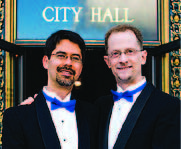 When we took a few moments to catch up on the news last week, we came upon two striking online videos that could not have appeared more different: King Harald of Norway’s much lauded speech embracing diversity delivered at a royal garden party, and excerpts of Charlotte, North Carolina, resident Lyric Scott’s Facebook Live feed, recording her immediate reaction to the fatal police shooting of her father, Keith Lamont Scott, near her house.
When we took a few moments to catch up on the news last week, we came upon two striking online videos that could not have appeared more different: King Harald of Norway’s much lauded speech embracing diversity delivered at a royal garden party, and excerpts of Charlotte, North Carolina, resident Lyric Scott’s Facebook Live feed, recording her immediate reaction to the fatal police shooting of her father, Keith Lamont Scott, near her house.
The depth and honesty of King Harald’s words at first startled then delighted those in attendance, and resonated not just in Norway but around the world. In his speech, the 79-year-old monarch celebrated Norway’s diversity and exhorted its citizens to deepen their sense of their common humanity. In a voice quiet, yet full of conviction, he reminded listeners that Norwegians were not only those who had been born in the county, but that “Norwegians have also immigrated from Afghanistan, Pakistan, and Poland, Sweden, Somalia and Syria.” Indeed, he explained that his own grandparents had immigrated from Denmark and England in the beginning of the 20th Century. “It is not always easy to say where we come from, to which nationality we belong. Home is where the heart is. That cannot always be placed within country borders.”
The King offered numerous examples of the country’s diversity, including “Norwegians (who) believe in God, Allah, everything and nothing.” And he embraced the LGBT community, explaining: “Norwegians are girls who love girls, boys who love boys, and girls and boys who love each other.”
In the beginning minutes of Lyric Scott’s Facebook Live video, Scott exclaims that “the police just shot my daddy four times for being black.” In angry, impassioned, and expletive-laden language, Scott throughout the video records in real time her thoughts as to what is going on. She expounds upon her belief that the police pulled up to her father’s car undercover as he was waiting to pick up his son at the school bus stop, and “shot my daddy because he was black. He was a sitting in the car reading a … book—so they shot him.”
Police say they were searching for someone else with an outstanding arrest warrant when they saw Keith Scott leave his car with a gun. According to police, Scott returned to his car; officers then approached the car; and when he came out of the car again with a gun, they shot him because they claim he “posed an imminent deadly threat to the officers … .”
Lyric Scott questions how the police could have legitimately feared her father because she says he was disabled, and suspects the police were planting a gun in his car even as she spoke. She also complains about the ambulance response time, warns of repercussions if her father ends up dying, and taunts police officers—all the while worried about how her little brother will get home from the bus stop.
And then Lyric’s Facebook feed records her live reaction when she learns from news reports that her father has died. She cries out, “they just killed my daddy,” and “my daddy is dead.” She utters a primal wail of grief and despair—in one sense voicing universal human pain some of us experience only internally, and in another sense vocalizing anguish and desperation unlike anything we have had to experience in our lives.
We do not know the facts of what literally happened that afternoon in Charlotte. But we do know that wealth disparities and racial segregation and discrimination persist in our society. The recently released 2016 Allianz Global Wealth Report found that what it calls the “Unequal States of America” has the highest disparity of wealth of any nation in the world. Protests over police shootings of African Americans bespeak not only problems in American policing and criminal justice, but more generally of intolerable racial disparities. Regardless of whether Lyric Scott’s assessment of her father’s death is literally true—something we do not know—her observation reflects reality figuratively. Continued racial and wealth disparities in this country contribute greatly to the fact that blacks are shot by police in disproportionate numbers to whites.
How then do we hold King Harald’s conclusion to his garden party address: “When we sing ‘Yes we love this country’ (Norway’s national anthem), we have to remember that we also sing about each other … . Therefore, the national anthem is also a declaration of love to the Norwegian people. My biggest hope … [is] that we can know that we—despite our differences—are one people.”
Do the King’s words only apply to Norway? Are they too idealistic even for that country? Do they pertain at all to the America laid bare in Charlotte, Tulsa, Baton Rouge, Chicago, Orlando, Cleveland, Ferguson, the Bay Area, and beyond? As an LGBT community, we proclaimed “Love Wins” when we achieved nationwide marriage equality last year. Lyric Scott’s haunting cry renders King Harald’s words a quiet plea for love to prevail in a world increasingly shown to be polarized. We must answer the sobering question: how do we make love win again?
John Lewis and Stuart Gaffney, together for over three decades, were plaintiffs in the California case for equal marriage rights decided by the California Supreme Court in 2008. Their leadership in the nationwide grassroots organization Marriage Equality USA contributed in 2015 to making same-sex marriage legal nationwide.
Recent Comments